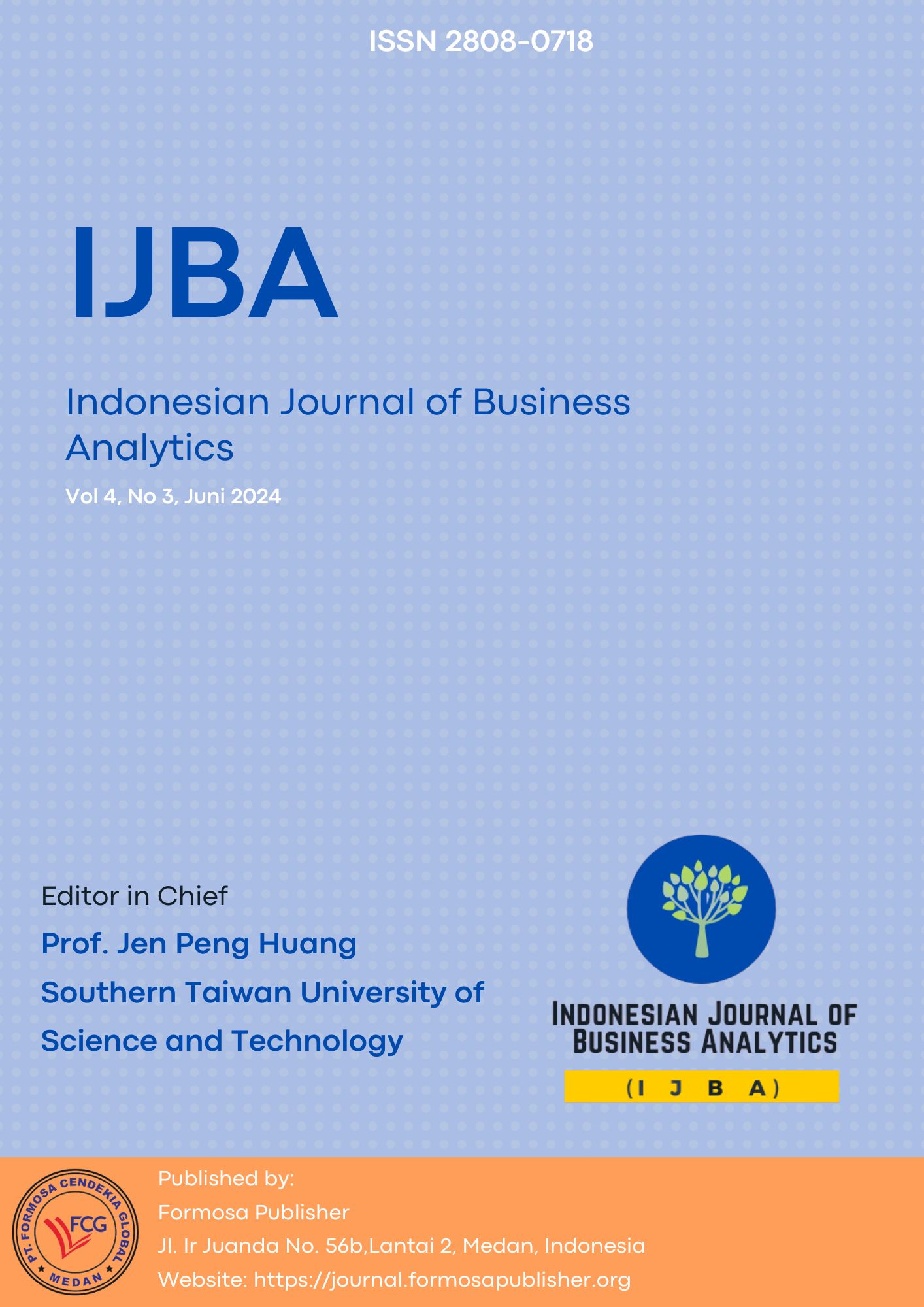Analysis of Information Technology Utilization, Tax Knowledge, and Taxpayer Awareness of the Level of Individual Taxpayer Compliance
DOI:
https://doi.org/10.55927/ijba.v4i3.9502Keywords:
Utilization of Information Technology, Tax Knowledge, Taxpayer, Awareness, Individual Taxpayer, ComplianceAbstract
The purpose of this study is to ascertain how information technology utilization affects taxpayer compliance, as well as the effects of tax knowledge and taxpayer awareness on compliance levels. A questionnaire is used to collect primary data for the quantitative research design. A random sampling methodology with one hundred respondents was used to carry out the sampling procedure. Multiple regression data analysis was done using SPSS version 25 software. The study's findings demonstrated that the level of individual taxpayer compliance was significantly impacted by the usage of information technology, tax knowledge, and taxpayer awareness. Individual taxpayer compliance was also significantly impacted by tax knowledge.
Downloads
References
Agoes, S., & Trisnawati, E. (2013). Akuntansi Perpajakan (3rd ed.). Jakarta : Salemba Empat.
Ainul, N. K. I. K., & Susanti. (2021). Pengaruh Pengetahuan Perpajakan, Sosialisasi Perpajakan, Dan Penerapan Sistem E-Filling Terhadap Kepatuhan Wajib Pajak Orang Pribadi Pada Kantor Pelayanan Pajak Pratama Surabaya Wonocolo. JURNAL PENDIDIKAN EKONOMI: Jurnal Ilmiah Ilmu Pendidikan, Ilmu Ekonomi Dan Ilmu Sosial, 15(1), 9–19.
Djo, D. K. Y. W. (2022). Pengaruh Pemanfaatan Teknologi Informasi, Sosialisasi Pajak Dan Penerapan E-Filling Terhadap Kepatuhan Wajib Pajak: Studi Kasus Pada Wajib Pajak Kota Yogyakarta. Jurnal Literasi Akuntansi, 2(2), 119–128.
Ermawati, N., & Afifi, Z. (2018). Pengaruh Pengetahuan Perpajakan dan Sanksi Perpajakan Terhadap Kepatuhan Wajib Pajak Dengan Religiusitas Sebagai Variabel Pemoderasi. Prosiding SENDI_U 2018, 655–662.
Fadhilah, P. N., & Afiqoh, N. W. (2022). Pengaruh Kesadaran Wajib Pajak, Sosialisasi Pajak, Penerapan E-Filing, Dan Sanksi Pajak Terhadap Kepatuhan Wajib Pajak Orang Pribadi. RISTANSI: Riset Akuntansi, 3(1), 12–26.
Hertati, L. (2021). Pengaruh Tingkat Pengetahuan Perpajakan Dan Modernisasi Sistem Administrasi Perpajakan Terhadap Kepatuhan Wajib Pajak Orang Pribadi. JRAK Jurnal Riset Akuntansi Dan Bisnis, 7(2), 59–70.
Nurmantu, S. (2003). Pengantar Perpajakan (2nd ed.). Jakarta : Granit.
Prasojo, L. D., & Riyanto. (2011). Teknologi Informasi Pendidikan. Yogyakarta : Gava Media.
Rahayu, S. K. (2010). Perpajakan Indonesia : Konsep Dan Aspek Formal. Yogyakarta : Graha Ilmu.
Solichin, M. R., & Astuti, S. (2021). Tax Payment Intention Using Theory of Planned Behavior Approach. Jurnal Ilmiah Akuntansi Dan Keuangan, 10(1), 11–19.
Warsita, B. (2008). Teknologi Pembelajaran, Lansadan Dan Aplikasinya. Jakarta : Rineka Cipta.
Downloads
Published
How to Cite
Issue
Section
License
Copyright (c) 2024 Dea Indriyani, Ratu Intan Nur Halimah; Dev Anand

This work is licensed under a Creative Commons Attribution 4.0 International License.







.png)

























